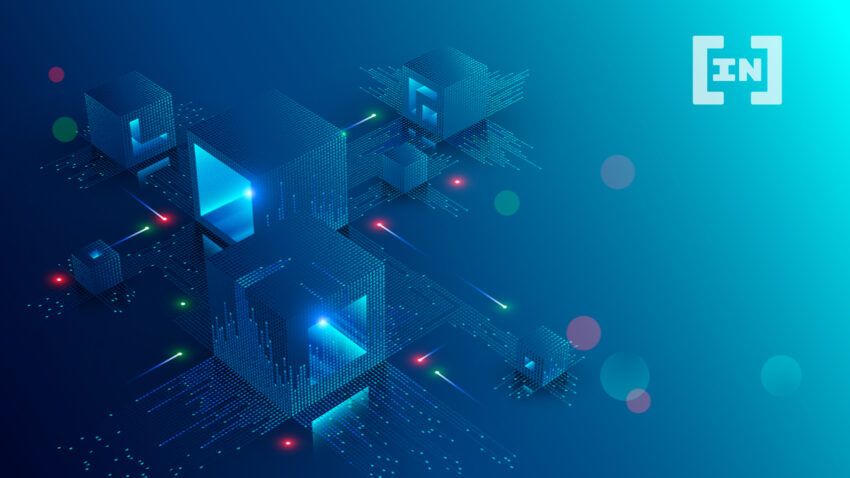DAOs and the future: As businesses increasingly move away from centralized and profit-above-all models, DAOs will take their place. As DAOs grow, so too will their treasuries, says Simon Furlong, Co-Founder of Geode Finance.
The birth of Web 1.0 gave rise to digital content and peer-to-peer communication. Web 1.0 was largely non-commercial through its early years. Then came Web 2.0, which facilitated communication and collaboration on a much larger scale. Businesses like Amazon, Facebook, and Google stepped in to provide the infrastructure and platforms needed to support a growing user base.
Now we’re in the early days of Web 3.0, where crypto assets and decentralized finance (DeFi) protocols are providing the building blocks for a new Internet – one that’s based on value instead of information.
Similar to the early days of Web 1.0, the early days of crypto were dominated by individual investors and hobbyists. Centralized exchanges like Mt. Gox, Coinbase, and BitStamp stepped in to provide the much-needed infrastructure for a growing ecosystem. At the time, use cases for cryptocurrencies were limited primarily to speculation and trading.
Ethereum’s breakthrough
But then came a breakthrough. In 2013, Vitalik Buterin proposed Ethereum, which paved the way for an entirely new class of decentralized applications (dApps). These dApps enabled a wide range of valuable use cases like lending, borrowing, and much more.
And similar to the Web 2.0 revolution, as the Web 3.0 ecosystem has grown and matured, retail and institutional investors have poured increasingly large amounts of money into DeFi protocols. This growth and maturation in the crypto and DeFi markets has created B2B opportunities that couldn’t have existed in years past.
There are now countless companies, decentralized autonomous organizations (DAOs), and revenue-generating protocols that support and provide valuable services to their users. Unlike years past, many of these “users” are now other companies or DAOs, instead of just individual retail participants.
The demand for B2B service providers in Web3 is surging as companies and DAOs seek tools and resources to support their businesses. For instance, Aragon provides applications and templates to help DAOs get up and running. Gnosis Safe offers multi-sig solutions for DAO asset management. And Geode Finance enables DAOs to increase revenue by providing white label liquid staking products.
DAOs and their treasuries
DAOs are essentially Web3-native companies, and like traditional companies, they have treasuries to maintain and grow. They need solutions that enable them to generate revenue and earn yield on idle treasury assets. This is where DeFi comes in.
For most DAOs living on Proof of Stake (PoS) chains, liquid staking presents an interesting option for generating revenue on idle treasury assets. A growing part of DeFi, liquid staking allows users to validate PoS networks to earn passive staking return without having to necessarily sacrifice other opportunities in DeFi for the same liquidity. Retail users love liquid staking for this reason, but so do DAOs that are sitting with treasuries full of base assets not earning any yield.
But who is being drawn to DeFi, like moth to a flame, and is increasing demand for these services?
DeFi is attracting enterprise
Enterprises are by definition risk-averse. They’re built to last, which means they’re much less likely to take chances on unproven technologies. But as the DeFi space matures, we’re seeing more and more businesses dip their toes into the world of decentralized finance.
This trend is being driven by the growing number of robust, battle-tested protocols and tools available in the DeFi ecosystem. These protocols and tools are enabling enterprises to do things that simply weren’t possible before.
As PwW reports, nearly half of traditional hedge fund managers are looking at investing in crypto. The likes of HSBC, JP Morgan, Citigroup, Mitsubishi UFJ Financial Group, Barclays, UBS, Goldman Sachs, Commerzbank, BNY Mellon, Signature Bank, and SBI Holdings are pursuing blockchain-related projects – the big guns are starting to take notice of DeFi.
At the same time, institutional investors are using platforms like Aave Pro and Alkemi, which are tailored specifically for them. These platforms offer features like compliance and KYC’d pools, which make it easier for enterprises to get involved in DeFi without having to worry about regulatory hurdles.
DAOs foster B2B adoption of DeFi
As DAOs progress and become more established, their stakeholders are becoming increasingly focused on achieving their goals, financial or otherwise. This has led to a boom in the development of B2B solutions specifically designed to meet the needs of DAOs, which is evidence of DeFi’s evolution and maturation. B2B tooling gives DAOs access to additional products and services that they can’t create themselves either because they don’t have the ability, or they lack the time and resources.
One of the most important benefits of these B2B solutions is that they allow DAOs to offer more sophisticated products and services to their users. This in turn expands their potential reach and longevity, as users are more likely to stick around if they feel they are getting value from the DAO.
DeFi solutions, in particular, have been a boon for DAOs. We are already seeing a strong spirit of collaboration in the DeFi space, which is providing a lot of value. For instance, oracles and indexers like Chainlink and The Graph are helping DAOs to access accurate data, while white label liquid staking protocols like Geode Finance are providing DAOs with new revenue-generating products for their users. With Geode, DAOs can earn interest on digital assets in their treasuries and expand their revenue streams with staking fees.
Further, liquidity provision and market-making services are helping DAOs to list their tokens on more exchanges and attract more users. And finally, investment firms are providing DAOs with the capital they need to grow and scale.
All of these B2B solutions are helping to foster the adoption of DeFi among DAOs. As more DAOs adopt DeFi, we can expect to see even more innovation and growth in this space.

DAOs and the future
The traditional corporation is based on a hierarchical model that’s optimized for efficiency and growth. But this model is no longer fit for purpose in today’s world. We now live in a world where information flows at the speed of light and technology is changing at an unprecedented rate.
As businesses increasingly move away from centralized and profit-above-all models, DAOs are poised to continue growing. With their decentralized governance structures, DAOs align the interests of all stakeholders – from employees and customers to investors and ecosystem partners.
As DAOs grow, so too will their treasuries and the need to create additional income streams. This is just part of what makes tooling such an important area of growth as DAOs seek out B2B services. Demand will increase for solutions that allow DAOs and their members to earn yield on idle assets. Thus DAOs, with the help of liquid staking protocols and other critical infrastructure, are in a unique position to capitalize on the Web3 revolution.
It’s only a matter of time before DAOs completely upend the status quo. From sales and marketing to virtual land and legal services, DAOs are slowly but surely taking over traditional business models. DAO-focused tooling and infrastructure providers are- and will continue to be a major contributor to this shift, and it’s only going to become more pronounced in the coming years.
About the author

Simon Furlong is the Co-Founder of Geode Finance, a white label liquid staking protocol for DAOs and DeFi protocols. Simon has more than a decade of combined experience in the financial, digital product, and media rights sectors, working previously as a risk analyst, product lead, and media rights director. His professional experiences and passions have inspired his mission to build products that support the growth of an efficient, decentralized, and vibrant Web3 ecosystem.
Got something to say about DAOs or anything else? Write to us or join the discussion in our Telegram channel. You can also catch us on Tik Tok, Facebook, or Twitter.
Disclaimer
All the information contained on our website is published in good faith and for general information purposes only. Any action the reader takes upon the information found on our website is strictly at their own risk.


